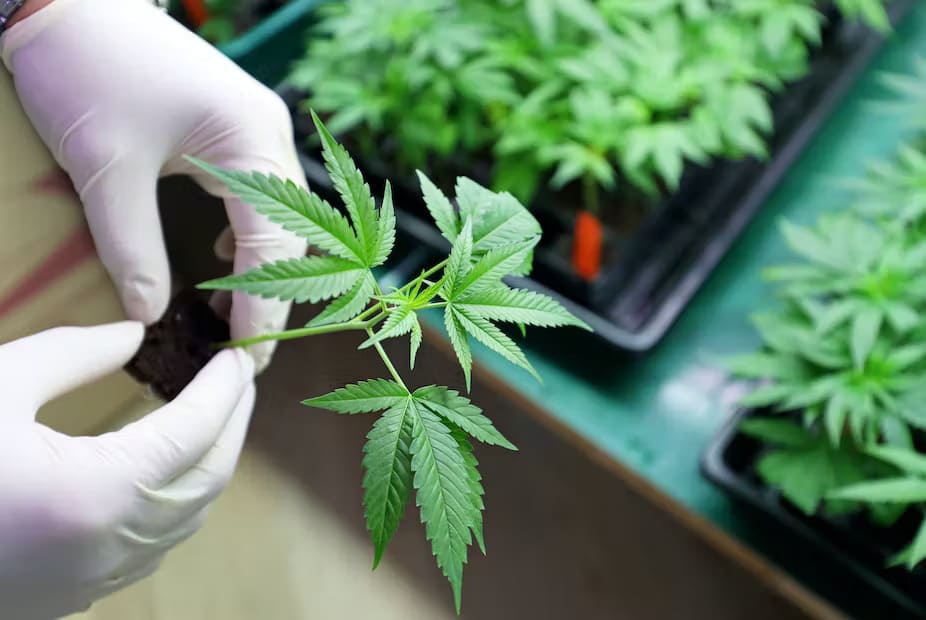Pain can tire you mentally and physically. Chronic mental and emotional suffering, such as worry, constantly makes the chronic physical pain worse. It is essential to treat pain but also consider the psychological and emotional symptoms of pain that are associated with physical pain. While some medicines are helpful in treating pain they have one drawback- the risk of overdose. When combined, they increase the likelihood of an overdose by compounding one another. And that’s why cannabis can be a good alternative to painkillers. Cannabis is useful in treating pain and inflammation. It may also replace prescription medicines such as opioids, and antidepressants.
Cannabis can be used to treat pain. Some of the most common conditions for which medical cannabis is used include multiple sclerosis, post-traumatic stress disorder, and chemotherapy-induced nausea and vomiting. Almost two-thirds of Americans used it for pain relief.
Cannabis can be useful in many health conditions. And if you want to know more about cannabis or how to use it for pain relief, we can help. Contact Specialty Care Clinics to get rid of your pain.
HOW DOES CANNABIS WORK?
According to The National Academies of Science, cannabis is helpful in reducing 86% symptoms of patients. Clinical studies have shown that cannabis products can effectively treat chronic pain while also being safe to use. There are, however, no clinical guidelines that can help determine the dose or prevent cannabis abuse, unlike pharmaceutical drugs. As a result, the majority of patients are left to experiment with the medication to learn how to utilize it most effectively for their needs.
Despite the fact that cannabis has been used medicinally for thousands of years prior to the present, modern science has helped us better understand how cannabis-derived medicine affects your brain and nerves and efficiently treats a wide range of health issues and qualifying conditions.
With cannabis different types of pain can be treated. This is due to the fact that the numerous cannabinoids, terpenes, and flavonoids found in cannabis can simultaneously target multiple receptor systems (such as opioids, serotonin, and cannabinoid).
The Food and Drug Administration of the United States and other countries have approved much medical cannabis for the treatment of pain, but only some are effective. For example, Sativex is used to treat neuropathic pain and spasticity pain.
The CB1 and CB2 cannabinoid receptor types are the two main cannabinoid receptor types found throughout the body. When it comes to pain perception, CB1 receptors are more important than CB2 receptors because they are more abundant and concentrated in areas of the central and peripheral nervous systems that deal with pain. Also, cannabis appears to reduce inflammation by affecting other receptors such as serotonin, adenosine, and peroxisome proliferator-activated gamma receptors.

DOES CANNABIS HELP WITH ACUTE PAIN?
Acute pain is sudden or acute discomfort and lasts for a day only. Headache, backache, and muscle ache are examples of acute pain. According to research, these and other acute pain conditions may benefit from cannabis treatment.
Headaches – Common cause of headaches is unknown but according to one theory, a lack of serotonin in the brain may be the cause of headaches. Some possible causes are given below –
- Inflammation
- Infections
- Stress
- Dehydration
- Sleep deprivation
- Gastrointestinal issues
- Overuse of medication
A study reveals, concentrates of cannabis are more beneficial than smoking cannabis flower as it reduces headaches or migraine by 50%.
Joint and Muscle Pain – Cannabis may be beneficial in joint pains as well as muscle sprains.
Broken bones – Broken bones result in musculoskeletal pain. A study from 2020 examined the possibility of cannabis to treat this difficult form of pain, which might reoccur months or years after a fractured bone heals.
Toothache – Cannabis is an excellent choice for treating toothaches due to its analgesic and anti-inflammatory properties.

CAN CANNABIS BE USED FOR CHRONIC PAIN?
Chronic pain interrupts your daily life. Cannabis is useful for conditions such as arthritis, fibromyalgia, and nerve pain. The main cause of chronic pain may also be an injury, or a side effect of certain cancer treatments like chemotherapy. Chronic pain sufferers can find relief from chronic pain with cannabis.
Arthritis – Arthritis affects the joints by causing pain and stiffness. The anti-inflammatory properties of cannabis are helpful in treating rheumatoid arthritis and osteoarthritis.
Fibromyalgia – Musculoskeletal pain is common in fibromyalgia. Other symptoms include insomnia, fatigue, and mood issues. In some people with fibromyalgia, cannabis has been shown to relieve musculoskeletal pain with few reported adverse effects.
Nerve pain – Nerve pain may occur from cancer treatments. According to studies and findings from clinical trials, cannabis therapy may be able to reduce neuropathic pain in cancer patients.
CAN CANNABIS HELP WITH MENTAL AND EMOTIONAL PAIN?
Physical pain like headaches is often accompanied by painful emotional and psychological conditions such as depression and anxiety. Research has proved that cannabis is beneficial in treating symptoms of depression and anxiety along with pain.
Depression – Evidence suggests that cannabis can help treat depression. However, other studies suggest the opposite – cannabis appears to be effective for depression in low or moderate doses.
Anxiety – THC (Tetrahydrocannabinol) can reduce anxiety at lower dosages but does the opposite at higher ones.
Grief, anger, or stress – People who use cannabis shows the feeling of euphoria, which could be useful in conditions like anger, grief, and stress. However much more study is required.
Post-traumatic stress disorder (PTSD) – The effects of cannabis on PTSD are mixed, with scientists offering different recommendations depending on the individual. It may be used as an alternative to benzodiazepines, prescribed to treat PTSD which is ineffective in long term.
